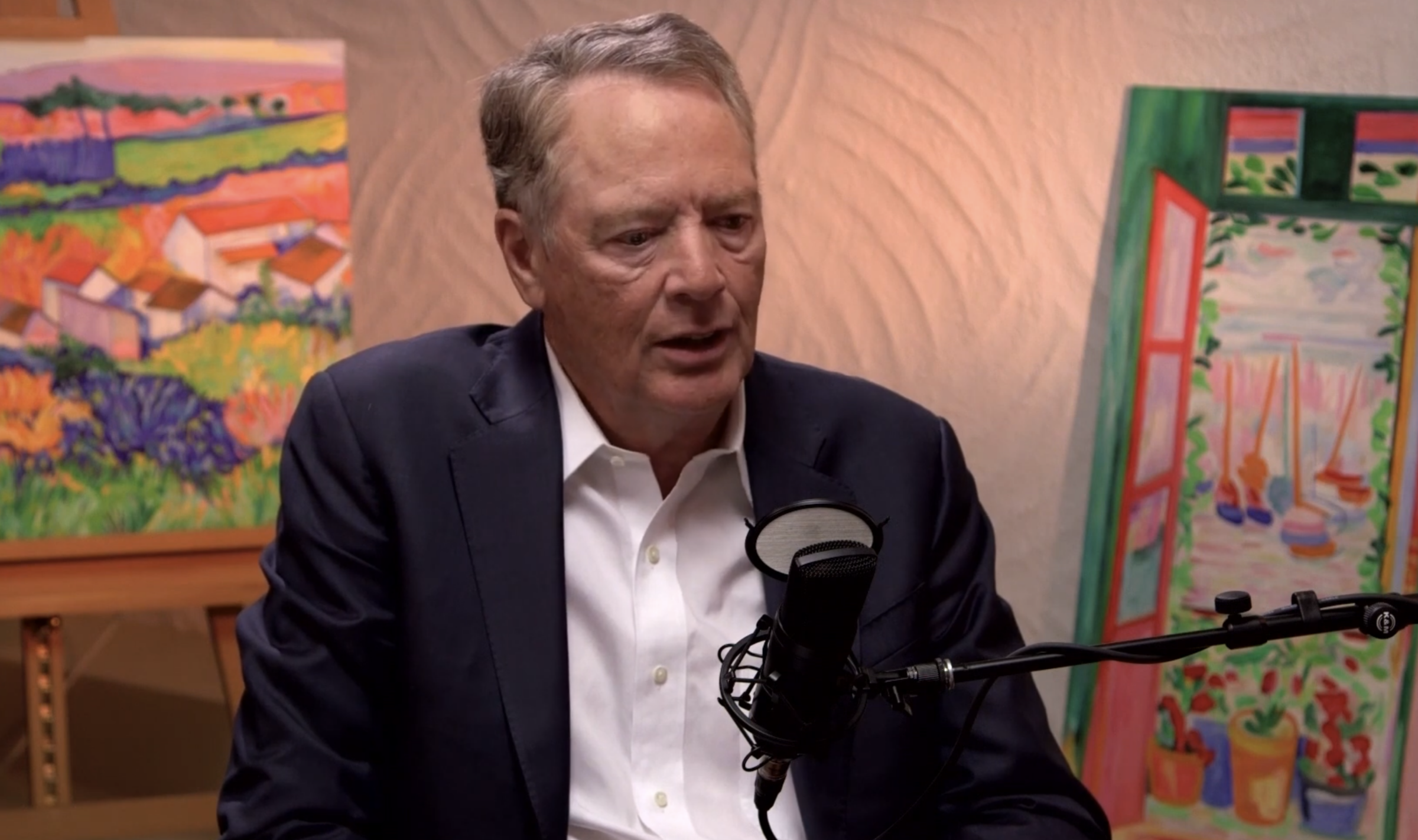Wealth & Poverty Review “When ‘Free Trade’ Does More Harm Than Good” with Robert Lighthizer
Originally published at The Bill Walton ShowClick here to watch the interview.
For regular listeners, you know I like to take on complicated subjects, and try to make clear what’s at stake for all of us.
Thanks for reading The Bill Walton Show! Subscribe for free to receive new posts and support my work.
Pledge your support
In this episode the Bill Walton Show we take a another deep dive into one of the most complicated and contentious areas of economic policy:
International trade.
International trade negotiations are incredibly complex multilevel games—there are negotiations not just with America’s trading partners, but with Congress, domestic constituencies, and rival factions within the executive branch.
There are sharp – almost theological – differences in how trade policy ought to work. I was taught that protectionism was terrible and that free trade was the highest good, but then found few examples of countries that actually practice it. It’s now clear that we cannot simply trust the principles of “free trade” to solve our problems — that every trade policy represents a balancing of interests.
The stakes have never been higher.
- Today we find ourselves in a position where our most important trading partner – China – has essentially revealed itself to be our mortal enemy.
- Trade is no longer a boring topic.
To break all this down I’m delighted to be joined in this episode by Robert Lighthizer, our US Trade Representative in the Trump Administration.
For more than 40 years, Bob Lighthizer has litigated, negotiated, and editorialized against the policies of one-sided “free trade” first in the Reagan Administration as Deputy Trade Rep and as a private lawyer.
As President Trump’s U.S. Trade Representative, he fought against globalists, importers, lobbyists, foreign governments and big businesses whose interests diverged from those of the American workers and American security.
Now Bob’s published a illuminating book “No Trade is Free” that for anyone interested in understanding the realities of international economic policymaking, this is the book.
Part memoir, part history, and part policy analysis, Bob lays out in detail what he sees as the objectives of a practical approach to trade policy.
Bob’s views on this subject have been remarkably consistent since the late 1990s when he editorialized against granting China admission to the WTO. At that time, he was a lonely voice in the wilderness.
Now his views are mainstream.
- We cover a lot a ground in this episode, from the role trade disputes played in the American Revolution, the American System of tariffs used to build up American industry to the pivotal entry of China into the World Trade Organization.
Since then China has become trade issue Number One.
After China’s entry “it created an ecosystem and learned about the subsidies and started doing all the other things that made it go from being an enormous problem to being a cataclysmic one,” explains Bob. “There is no private sector in China.”
“Outsiders make money in China only as long as the Communist Party of China allows you to make it. And when you’re not benefiting them, you’re out. And we have all these clever American businessmen who think, “Oh, I’m making money in China.” They don’t realize they’re simply being allowed.”
“China’s purpose is for you to transfer know how, transfer technology, and help their ecosystem to get more business. And then you’ll see after a period of time, you won’t be useful anymore. And then, at that point, you’ll find yourself with a Chinese competitor who’s not only taken over your entire market in China but is now threatening your market in the United States.”
- “So the number one thing has to be decoupling with China without question. And there’s a number of specific steps, many of which I have outlined in the chapter on the China prescription. We have to right this ship. There’s a lot that needs to be done.”
Listen in for a great overview of trade issues and what to do about China.

